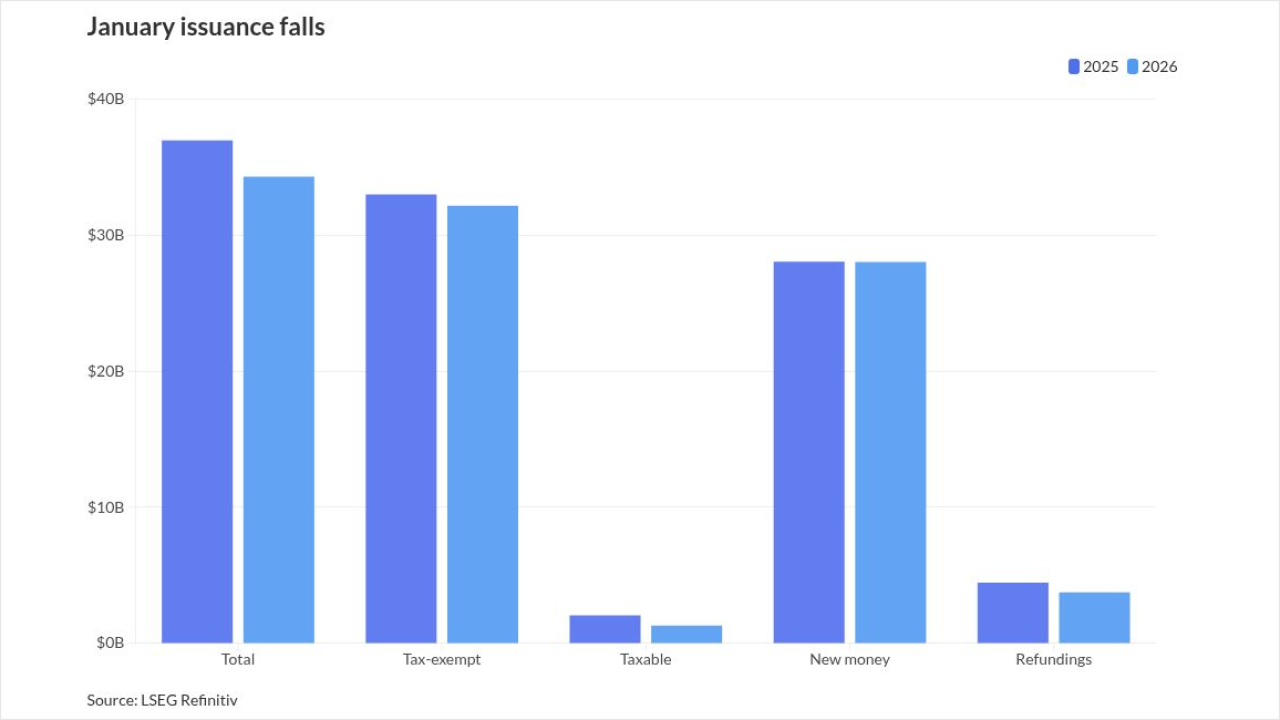CHICAGO The Metropolitan Water Reclamation District of Greater Chicago lost its Aaa rating from Moody’s Investors Service Tuesday over its growing unfunded pension burden, the latest in a series of downgrades to hit Chicago area governments all tangled in a pension quagmire.
Moody’s lowered the district’s rating to Aa1 but warned of the potential for further deterioration by assigning a negative outlook. The action impacts $2.6 billion of general obligation bonds.
The downgrade reflects “the district’s outsized pension liabilities which have grown due to contribution levels that have fallen short of actuarial standards,” Moody’s analyst Rachel Cortez said in the report. “The downgrade also reflects the significant debt burden and pension liabilities of overlapping entities, particularly the city of Chicago, which represents half of the district’s tax base.”
The action on the district’s credit along with other area local governments here follows revisions to Moody’s assessment of pension obligations in a local government’s overall credit profile. The district provides wastewater treatment services to 5.3 million customers in Chicago and 128 surrounding municipalities.
The district still enjoys the second-highest rating from Moody’s and AAA from Fitch Ratings and Standard & Poor’s. Moody’s recently socked Chicago with a triple-notch downgrade and has also lowered the ratings of the Chicago Park District, Cook County, and Chicago Public Schools.
All share to some degree Chicago and/or Cook County’s property tax base and all are struggling with growing unfunded pension obligations. Chicago, the county, and other local area governments are all looking to the state General Assembly to break an impasse and act on pension benefit and payment reforms. In the reclamation district’s case, lawmakers did approve funding reforms in 2012.
The district’s single employer pension plan reported an unfunded actuarial accrued liability of $1.1 billion at the end of 2012. Applying its more conservative calculations, Moody’s puts the adjusted net pension liability at $2.3 billion. The district reported a $1 billion unfunded liability in 2011 for a funded ratio of 52.2%.
The still-strong rating is supported by the district’s large and diverse tax base including affluent suburbs, strong financial operations and management, and ample reserves. Moody’s did credit the district for its “promotion of pension reform” that won General Assembly approval but it failed to stave off the downgrade.
The legislation increased the district’s annual contributions and the district is permitted, but not required, to fully fund the actuarially determined annual required contribution, or ARC. The state and most other local governments make payments based on a statutory formula that has long fallen short of the ARC.
The district’s debt service and pension contributions along with other fixed costs consume a high percentage of its operating budget.
“The negative outlook is based on the likelihood of continued growth in unfunded pension liabilities of the district” and likely growth in the obligations of the overlapping governments, Moody’s said.
The district sought to underscore that it was changes in Moody’s methodology on pension obligations and greater attention paid to the overall burden placed on the tax base here that drove the downgrade. It also highlighted its previous move unique among Chicago area governments to begin funding its retiree healthcare obligations.
“We are proud of the work we have done on behalf of Cook County taxpayers to streamline our operations while adapting to recent economic conditions,” MWRD Treasurer Mary Ann Boyle said in a statement. “Not only have we maintained our AAA rating with Standard and Poor’s since 2006, but last February, Fitch Ratings affirmed our AAA rating with a stable outlook, something we have achieved for the past 12 consecutive years.”





